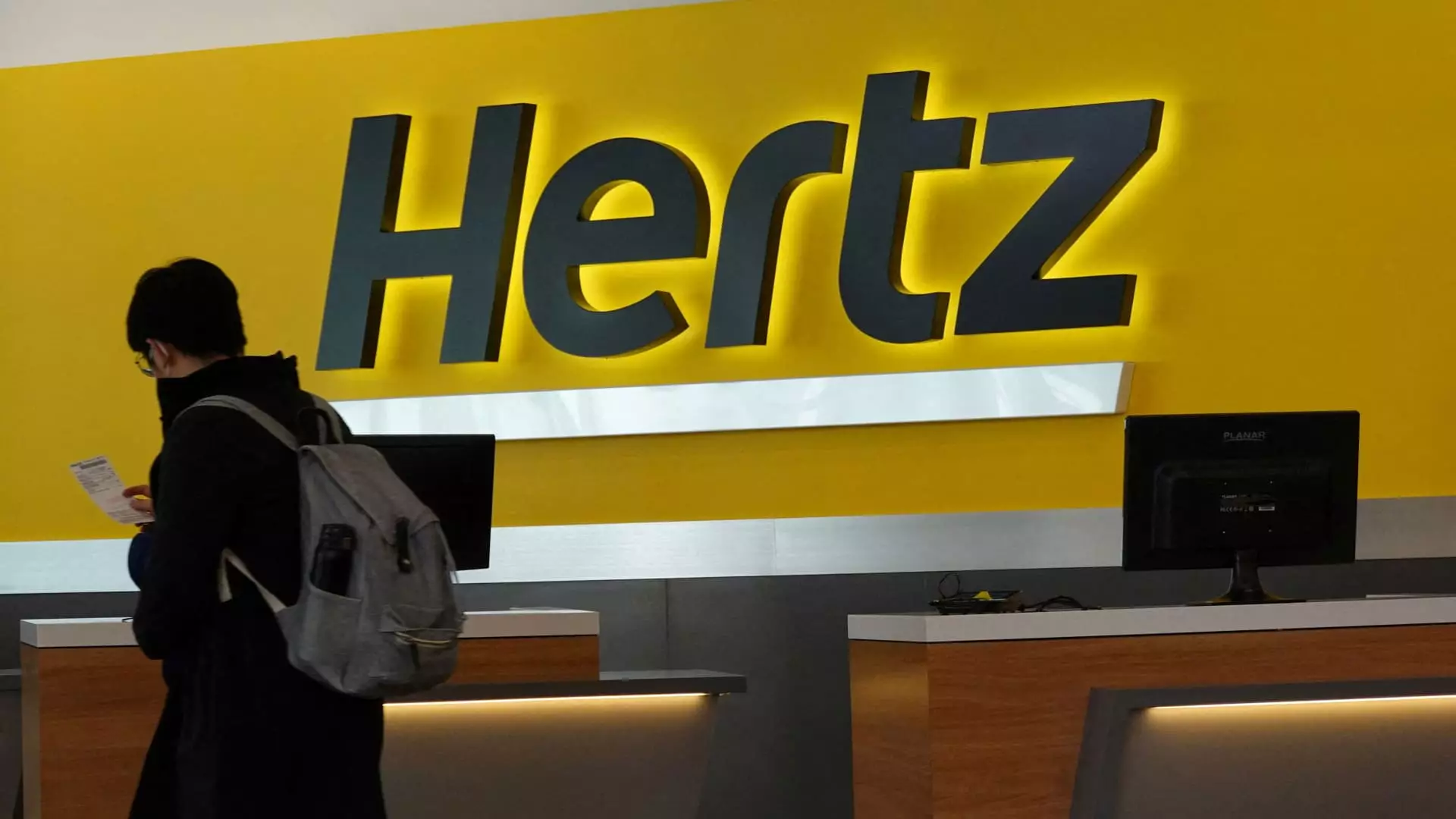Hertz’s Turbulent 2023: A 250 Million Dollar Gamble and 20% Drop

In a recent debacle that rattled investors and industry watchers alike, Hertz Global Holdings saw its stock value plunge over 20% after revealing bleak first-quarter earnings. This downturn was underscored by an unexpected $250 million stock offering aimed at debt reduction. The stark reality faced by Hertz paints a grim picture for a company that has struggled to navigate the complex landscape of a shifting economy, consumer sentiment, and external pressures such as auto tariffs under the Trump administration. As an organization that had previously garnered optimism from market shareholders, this downturn signals deeper issues.
Shocking Earnings Report
Hertz’s financial performance this quarter was underwhelming, with a reported loss per share of $1.12—significantly worse than the anticipated loss of 97 cents. Furthermore, automotive revenue came to $1.81 billion, falling just short of analyst expectations of $2 billion. Such a shortfall raises serious questions regarding Hertz’s operational efficacy and market adaptability. As the rental car giant faces increasing competition and systemic industry challenges, the lackluster results from this quarter invite skepticism about its strategic positioning.
The company’s Chief Financial Officer, Scott Haralson, attempted to provide assurance during the earnings call by explaining the rationale behind the stock offering. He emphasized the importance of “deleveraging” as a strategy, insisting that Hertz is considering multiple avenues to address upcoming financial maturity. However, this insistence on a financial restructuring feels like a stab in the dark when weighed against plummeting stock prices and investor trust.
Market Reaction and Investor Sentiment
Investors were clearly not convinced by Hertz’s reassurances. Initial trading saw shares fall by more than 20%, with the closing figure resting at nearly 17% lower than the previous day. This stark decline serves as a cautionary indicator of investor sentiment towards companies that gamble with their capital—demonstrating how quickly things can turn sour. Following these revelations, analysts have started to reconsider their optimistic forecasts, adding to the prevailing gloom centered around Hertz’s brand.
Scott Haralson’s appeal for patience and understanding—rooted in a claimed “improved earnings profile”—will likely fall on deaf ears considering the immediate fallout. The notion of “deleveraging” falls flat against the backdrop of decreasing consumer sentiment and challenges faced by the entire rental car industry. All these factors lead to a perfect storm that raises overwhelming concern as to whether Hertz can recover.
The Broader Implications of Reduced Fleet Capacity
One of the company’s key strategies—the reduction in fleet capacity—arguably compounds the risk of a downward spiral. By limiting the number of cars available for rent in a market already hampered by reduced bookings, Hertz is in danger of boxing itself into a corner: fewer cars could mean fewer revenues, especially as tourism remains tepid and consumer confidence dwindles.
In fact, the CEO Gil West’s words during the call—that the focus is “on pruning some revenue” while they navigate through this transformation—indicate a disconcerting approach. By slashing vehicle availability, the company risks alienating consumers who may take their business elsewhere. The ambitious hope of manufacturing “more demand than we can satisfy” amidst these pressures emerges as both idealistic and, frankly, egregiously naïve.
A Comeback Roadmap or a Pipe Dream?
Despite Hertz’s optimistic rhetoric, such as the initiation of the “Back-to-Basics Roadmap” and the potential for bright spots like a record number of vehicle sales to retail customers, the reality remains daunting. The notion that they can turn around fortunes by focusing on vehicle utilization feels somewhat like rearranging the deck chairs on the Titanic amidst a widespread financial crisis.
While the company has managed to improve direct operating expenses significantly year-over-year, this metric needs to be viewed with caution. An analysis from Barclays underscored the overarching concern: while there may be operational improvements, the essential metric of demand poses substantial risks ahead. The recent stock activity reflects a simple truth: vague promises of resurgence backed by shallow metrics are no longer enough to earn investor confidence.
In a landscape where consumer expectations and market stability hang in delicate balance, Hertz’s approach and commitment to execution must evolve. Investors are right to remain skeptical as they await tangible actions that demonstrate the company’s capacity to turnaround what appears to be a swiftly sinking ship. The sentiments surrounding Hertz serve as a grim reminder of the volatility inherent in the corporate world, especially for those which rely on nimbleness and adaptability—qualities that seem to be increasingly out of reach for this troubled rental car pioneer.





